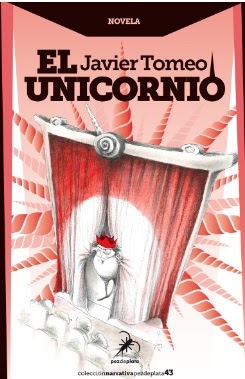
Original language: Español
Year of publication: 1971
Valuation: Recommended (although not for everyone)
What a surprise, The Unicorn. Because this experimental novel by Javier Tomeo is, in addition to being very interesting, an exquisite reading experience. It does not surprise me that it won the Ciudad de Barbastro Award in 1971, given its quality and avant-garde.
I sincerely believe that it borders on perfection. If it had exceeded 150 pages, perhaps it would be heavy or repetitive; If his innovative commitment had not been so well exposed, it could have fallen into the hermetic. Fortunately, the work is round, and succeeds in everything it sets out to do.
We could consider it a satire of Power. Above all, one that attacks totalitarianism and mocks dictators and their henchmen, whom he portrays as ridiculous little men or conspirators who only want to prosper and save their own skin.
It divides the action into three planes, which begin clearly separated and progressively merge into one, either because they interact physically or because they dialogue thematically. The three plans are: 1) A theatrical performance set in the kingdom of Vandalia, ruled by the grotesque Duke Tancred IV. 2) The nine spectators who are watching her (who are kept prisoners in their seats by invisible forces and an usher who follows orders). 3) Several streets down, a man and a woman try to love each other unsuccessfully in a room that goes from “red” to “chameleon”, “multicolored” and “all the colors in the world.”
The only things that could be reproached The Unicorn are that its plot is, at times, somewhat disjointed, and that it introduces too many characters to delve into all of them. However, the boldness of its approach, the effectiveness of its atmosphere, the accuracy of its denunciations and its Kafkaesque aromas mean that the aforementioned limitations hardly hinder the whole.
So: a highly original premise executed with astonishing solvency, simultaneous narratives, extravagant characters, delirious dialogues, a lot of symbolism, splashes of humor and bold social criticism. This and more, much more, you will find in Tomeo’s little gem, which will not be to the taste of all readers but will delight lovers of the absurd who value formal risk and artistic intentionality.
Source: https://unlibroaldia.blogspot.com/2023/12/novelas-pirana-3-el-unicornio-de-javier.html


